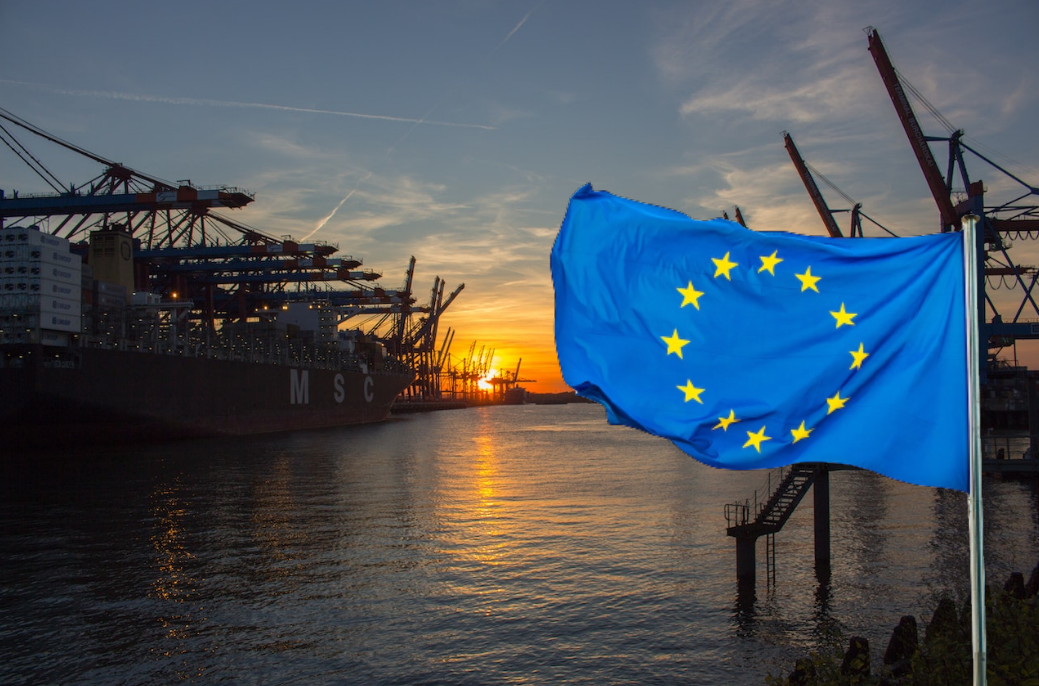
The European Parliament and Council have reached a groundbreaking provisional agreement on cleaner maritime fuels. The deal aims to drive the EU maritime sector towards the adoption of renewable and low-carbon fuels, ushering in a new era of decarbonization. With this agreement, the EU is taking substantial strides towards its goal of becoming climate neutral.
Central to the agreement is the commitment to cut greenhouse gas (GHG) emissions from ships progressively. Ships above a gross tonnage of 5000, responsible for approximately 90% of CO2 emissions, will have to reduce GHG content in their energy use by 2% by 2025, 6% by 2030, 14.5% by 2035, 31% by 2040, 62% by 2045, and an ambitious 80% by 2050. These targets will apply to all energy used onboard ships while in EU ports or voyages between EU ports. Moreover, 50% of energy use during voyages to or from non-EU countries or EU outermost regions will also be subject to these reduction targets.
An important aspect of this agreement is the provision for review by 2028, where the European Commission will consider extending emission-cutting requirements to smaller ships or increasing the share of energy from non-EU countries. This ensures the continual expansion and improvement of efforts to reduce maritime emissions in the coming years.
Renewable Fuels Incentives
The deal provides shipowners with additional incentives to embrace renewable fuels. From 2025 to 2034, shipowners who use renewable fuels of non-biological origin (RFNBO) will receive credits as an incentive to offset their emissions. The agreement also establishes a target of 2% renewable fuels usage by 2034 if the Commission finds that RFNBO usage in the fuel mix is less than 1% in 2031. This incentive-based approach encourages the adoption of cleaner fuel alternatives, further contributing to the reduction of maritime emissions.
On-Shore Power Supply for Major EU Ports
The agreement also addresses the issue of air pollution in ports. By 2030, containerships and passenger ships at major EU ports will be required to use on-shore power supply for all their electricity needs while moored at the quayside. By 2035, this requirement will extend to all EU ports equipped with on-shore power supply infrastructure.
Certain exemptions will apply to this rule, such as stays at port lasting less than two hours, ships using their own zero-emission technology, or making port calls due to unforeseen circumstances or emergencies. The implementation of on-shore power supply will significantly reduce air pollution in ports, contributing to cleaner and healthier port environments.
A Bold Step Towards Climate Goals
The ambitious path to maritime decarbonization outlined in this agreement is unparalleled globally. As a quarter of the EU’s total CO2 emissions in 2019 were attributed to the transport sector, with 14% coming from water navigation, this measure will play a crucial role in achieving the EU’s climate targets.
The “Fit for 55 in 2030 package,” of which these new maritime fuel rules are a part, reflects the EU’s commitment to reduce greenhouse gas emissions by at least 55% by 2030 compared to 1990 levels, in line with the European Climate Law. The deal demonstrates Europe’s determination to lead the world in climate efforts while setting a powerful example for other countries to follow.
Long-term Rules and Predictability for Investment
One of the key advantages of this agreement is the guarantee of long-term rules and predictability for the shipping sector. With a clear roadmap for emissions reduction and incentives for adopting renewable fuels, shipping companies and ports can confidently invest in sustainable practices. This not only benefits the environment but also safeguards the jobs of seafarers, dockworkers, and export industry workers.
Next Steps
While the provisional agreement marks a significant milestone, the deal is yet to be formally approved by the Council Committee of Permanent Representatives and Parliament’s Transport and Tourism Committee, followed by the Parliament and Council as a whole.

